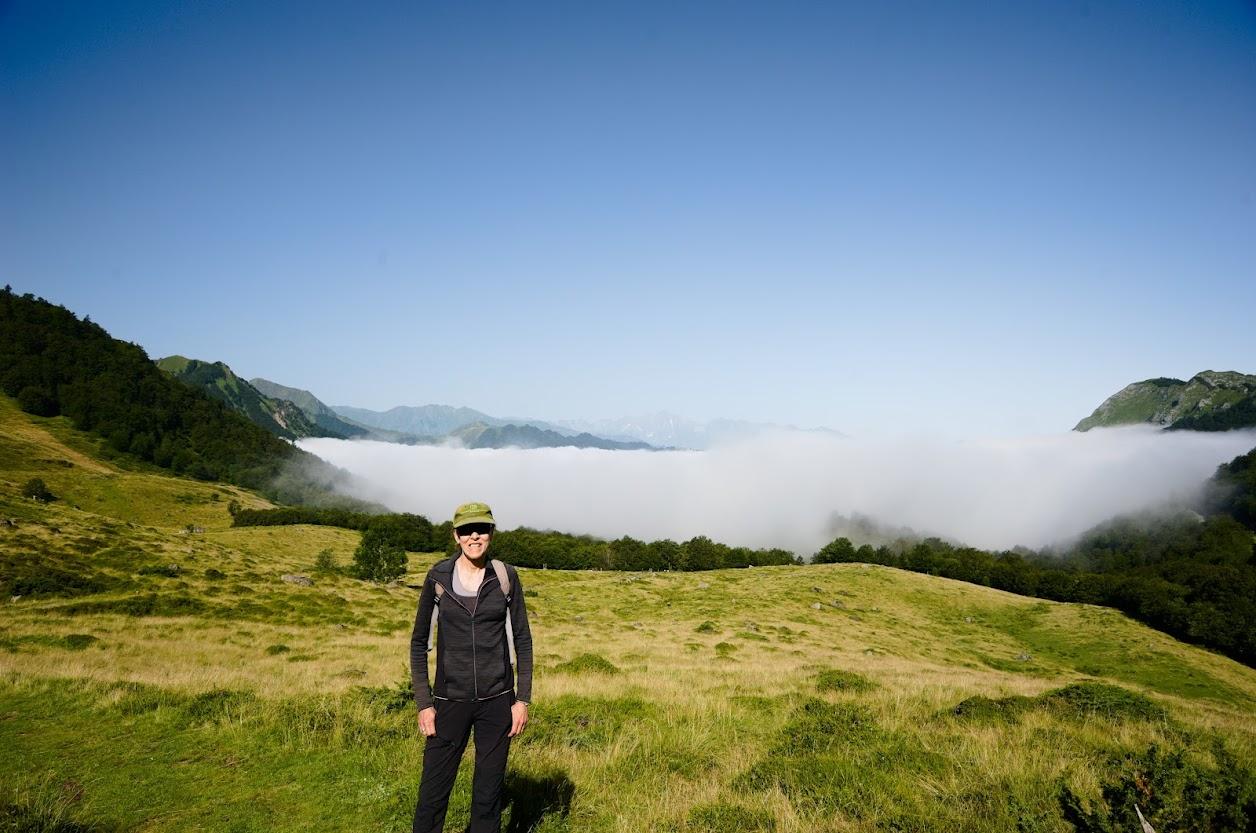
How many faculty do you know who’ve been on not one, not two, but three Fulbrights? For French professor Valerie K. Orlando, the world is her classroom. From the souks of Marrakech to the traboules of Lyon, her time spent in Morocco, Tunisia, and France have been foundational to her work in the humanities—and she’s not done yet. As a humanities scholar with a focus on Africa and the Caribbean, her international experiences are foundational to her explorations of literature, film, and women’s studies in these regions. She is a six-time author, with her recent publications using research from her Fulbrights. You can learn more about Orlando’s work by visiting her website.
1. What inspired you to start this process of becoming a Fulbright participant? What was your process in approaching the application?
There are very few grants that are substantial enough in the humanities to cover research abroad, particularly in Africa where I spend a lot of time. Therefore, Fulbright was essential in enabling my research in Morocco, Tunisia, and Algeria. I could not have written my books on the sociocultural and literary histories of these countries without Fulbright funding. I was the first scholar (according to Fulbright) in the humanities to have been awarded the Fulbright-Tocqueville Distinguished Chair award in 2019 to France.
I think one of the reasons I have been so successful obtaining Fulbrights is that very few scholars do what I do and want to go where I want to go. For example, I traveled all over Morocco to interview authors and filmmakers about their work (books published in 2009 and 2011). My main goal was to look at how film and literature of French expression were influencing and reflecting the sociopolitical and cultural transitions taking place in Morocco.
I found all this exceedingly fascinating and Fulbright funding aided in my need to go “deep” into the culture to understand certain things. My goal was to write books about the society and the cultural production in Morocco for students and colleagues in the U.S. who know very little about the country. All the research concluded thanks to Fulbright has also been funneled into my courses on the literature and cultures of Africa and their expression in French. These courses have been developed for both undergraduates and graduates in our program in French/Francophone Studies.
2. In 2022, the university released their new strategic plan, Fearlessly Forward. One of its core tenets is to take on the world's grand challenges. In what ways did your work contribute to finding solution(s) to the world's grand challenges?
In my work, I emphasize the necessity of travel and living for extended amounts of time in a foreign country in order to understand its history, languages, and modes of cultural expression. In Morocco, for example, there are more than five ‘official’ languages with at least three different Berber (Amazigh) languages that are regularly spoken. If we are to engage in the “world’s grand challenges” we need to evoke the necessity of learning other people’s languages, experiencing their cultures, and learning how they see things and are finding solutions to the challenges we face. I always tell my students that “our way is not necessarily the best way!!” One only finds this out by living and experiencing as well as discussing with others in their language. English is not the only language in the world and most people do not speak it! In all my publications, I express the need for understanding “humanity” and what that means in many contexts and languages.
3. What was the most surprising thing you found in your research and scholarship?
Traveling across North Africa on various Fulbrights led me to realize how much the “average” person living in these countries (particularly Algeria, Morocco, Tunisia) must face challenges that the average American never will need to entertain. I also realized that I am so very privileged—that I live in the 1% of the world that doesn’t have to think much about finding potable water, whether or not my crops are going to fail due to climate change and, thus, not being able to feed my children, and/or to what extent the State has power over my life and can determine if I live or die. That’s what one learns when one goes “deep” into a culture.
4. How do you plan to carry forward what you learned and the relationships you formed while abroad?
The relationships I have formed among colleagues and students (in Africa, Europe and the Middle East) because of Fulbrights and other such grants, which have allowed me to spend long periods of time in Africa and Europe, have led to long-standing, lasting connections. I continue to be asked to sit on or direct Ph.D. dissertations in multiple countries in both French and English. The publications I have produced because of international grants such as Fulbright have allowed me to become internationally known in my field, which has led to invitations to multiple conferences, collaborative projects, and scholarly exchanges. I could not “do” what I do, in my scholarship and in my teaching, without having and continuing to have the possibility to obtain Fulbright funding. I plan on applying for another Fulbright, probably my last before retirement in 2026. I cannot write on the cultural production of Africa and the Caribbean…and even of France, without these international funding opportunities.
_____
Visit our Fulbright Scholars gallery to meet our fearless scholars engaging with the world. For general program information and application guidance, visit our "How to Fulbright at Maryland" section at the bottom of the page. Interested in applying for your own Fulbright, or want to learn more about the program? Email UMD’s Fulbright U.S. Scholars liaison Scholten@umd.edu.
